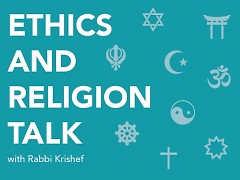James writes, “In recent months we have seen reports from Philadelphia of widespread clergy sexual abuse of children followed by widespread cover-up also committed by clergy. As a member of the clergy what do you think of your profession weighing in on ethical issues when it seems unable to police itself?”
Father Kevin Niehoff, O.P., a Dominican priest who serves as Adjutant Judicial Vicar, Diocese of Grand Rapids, responds:
“I must first correct that last assertion in this statement. The Dallas Charter of 2002, 2005, 2011, and 2018 has provided a schema for the protection of children. Although the full fallout from the Pennsylvania Grand Jury report, as well as subsequent investigations from States Attorneys General, is yet to be fully realized, the overwhelming data indicates that proper reporting of said perpetrators to civil authorities is occurring; and there are few new cases since 2002.
“For myself, I am sickened by the sexual abuse of children. I have been up to my eyeballs in dealing with abusers since 2002, so for me there are no ‘new’ revelations. I have served as an advocate for those abused (protecting those individuals’ rights, and these individuals have rights), a Judge in a pedophilia case, and as a prosecutor in an ecclesiastical trial.
“Sadly, a high percentage of individuals who abuse children (not just priests) were abused themselves. This is a problem not only for those in ministry but also for us as a culture. The best disinfectant is sunlight and I hope and pray those who have been abused continue to come forward so they may experience healing and peace.”
Fred Stella, the Pracharak (Outreach Minister) for the West Michigan Hindu Temple, responds:
“The writer here paints with a rather broad brush. Everyone on this panel belongs to a different religious organization. While abuse within the rank and file is age old those in leadership positions have responded in various ways; everything from brazen coverup attempts to honest and open efforts toward repentance and reform.
“It's important to note that we panelists research our answers from within the wisdom of thousands of years. Some of us also add to that from our personal experiences, reason and intuition. Regardless of how we arrive at our answer it should also be noted that while we attempt to convey the high ideals of our religion to on the ground expression of a moral issue by adherents might not always match that. This is a part of our human condition. But this by no means exempts those of us in the positions we hold from striving to provide moral guidance while simultaneously striving towards a most noble life.”
The Reverend Colleen Squires, minister at All Souls Community Church of West Michigan, a Unitarian Universalist Congregation, responds:
“It is often the case when I sit down to write my answers to these ethical questions I ask myself, ‘Who am I to weigh in on these topics, by what authority do I speak from, am I worthy of this task?’ Having served in a Catholic hospital as a chaplain in the city of Boston following the clergy sexual abuse crisis, I saw firsthand the pain, hurt and devastation caused by the clergy to good people of faith. This abuse broke people’s hearts and often broke their relationship with God. This experience was very profound in my formation as a member of the clergy.
“I think as clergy we must own the failures of our profession or calling to live up to the ideals of our faiths. I think it falls upon the clergy to call out when we see wrong-doing and we must also stop the cover-ups and the denials. Each time one clergy fails our entire profession is lessened and the trust is broken once more.
“I think the ‘good apples’ of the clergy, politicians, and police officers must call out and throw out the ‘bad apples’ of our respective professions. When we do this we are living up to the ethical standards of our calling. As my seminary professor would say, ‘Live a life worthy of being revered.’ ”
Dr Sahibzada, the Director of Islamic Center and Imam of the Mosque of Grand Rapids, responds:
“Righteousness, God-fearing, and honesty is part and parcel of a godly person’s life. If someone is not fulfilling the criteria for the job of clergy obligation and duties, he disqualifies himself from the job and commits multi-fold crimes. He loses trust of God, admits an inability to perform obligations, and on top of that commits crimes against innocent people of humankind. He misguides the congregants instead of guiding them.
“Cover-up of the sexual abuse of children is a heinous crime. All those who participate in the cover-up, they all must be dealt with under strict application of the law. Ethics and manners must be upheld all times. If someone is unable to protect himself then it is his duty to come out of betraying himself and others.”
This column answers questions of Ethics and Religion by submitting them to a multi-faith panel of spiritual leaders in the Grand Rapids area. We’d love to hear about the ordinary ethical questions that come up on the course of your day as well as any questions of religion that you’ve wondered about. Tell us how you resolved an ethical dilemma and see how members of the Ethics and Religion Talk panel would have handled the same situation. Please send your questions to [email protected].
The Rapidian, a program of the 501(c)3 nonprofit Community Media Center, relies on the community’s support to help cover the cost of training reporters and publishing content.
We need your help.
If each of our readers and content creators who values this community platform help support its creation and maintenance, The Rapidian can continue to educate and facilitate a conversation around issues for years to come.
Please support The Rapidian and make a contribution today.
